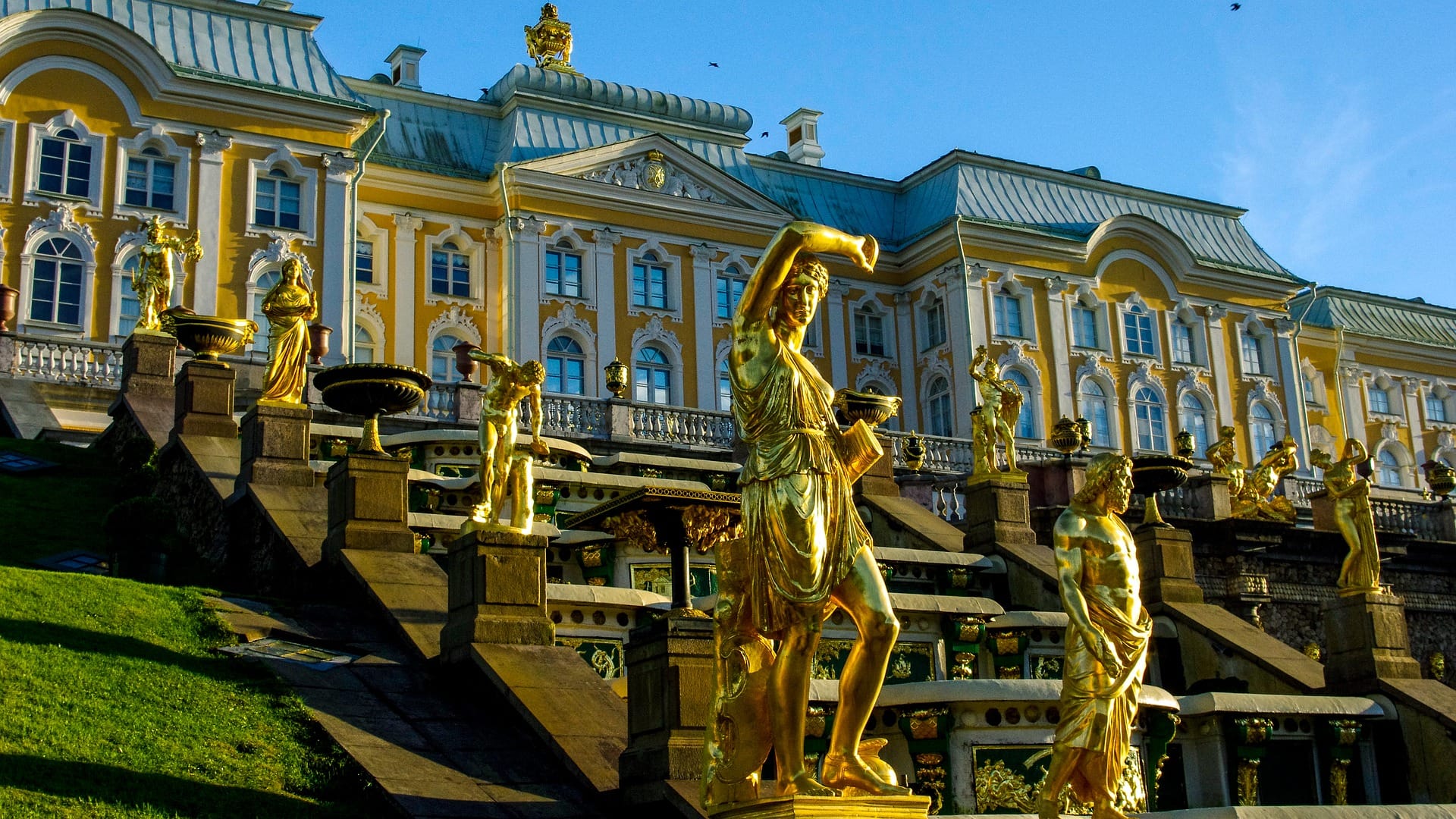
SEO translation Russian
Internationalization with Russia as a target market is an extraordinary challenge in terms of SEO optimization. Learn from us which particularities the Russian language holds and how a customer-oriented translation can succeed. With MONDIS your content will be perceived correctly and target-oriented in the Russian language area.
Using Russian profitably
Where are the local challenges in SEO translations in Russian?
Russian as a Slavic language serves one of the largest linguistic areas in the world. More than 260 million people use the Russian language in their everyday lives. 167 million people call Russian their mother tongue. It is an official language in Russia, Belarus, Kazakhstan, Kyrgyzstan, Abkhazia, South Ossetia and regionally in Ukraine and Moldova, but people in Azerbaijan, Georgia, Armenia, Tajikistan, Uzbekistan and the Baltic states of Lithuania, Latvia and Estonia are also familiar with the Russian language. With such an extensive international scope, a correct SEO translation requires a precise definition of the target markets in order to meet local peculiarities and linguistic habits. It is important to recognize the respective linguistic, cultural and search engine-relevant terms and to incorporate them into the translation in a target-oriented manner.
Where are the technical challenges in SEO translations in Russian?
In addition to the linguistic and cultural aspects, there are two essential aspects to consider when translating into Russian: Unlike many other markets, Google does not hold a monopoly position in Russia. Rather, google.ru is subject to many restrictions and regulations. Significantly larger and more common in use is the search engine Yandex. Due to usage habits, different keyword research for both search engines is necessary to optimally reach customers in Russia. In SEO translations, the researched keywords must work perfectly in interaction to achieve optimal rankings. The second aspect is the Cyrillic spelling, which is required for Russian. Using the correct characters adds to the credibility of one’s website.
Russian language in SEO translations
What are the main grammatical rules in Russian?
- Spelling: The spelling essentially follows the pronunciation. The pronunciation rules are simple and understandable.
- Articles: There are neither definite nor indefinite articles in the Russian language.
- Gender: The Russian language provides for three genders – masculine, feminine and neuter.
- Cases: Nominative, genitive, dative, accusative, instrumentalis, and prepositional are the cases in Russian.
- Numerus: A distinction is made between singular (singular) and plural (plural).
- Adjectives: In Russian, adjectives agree with nouns in genus, case, and numerus.
- Tenses: In Russian, three different tenses can be used: present, past, and future tenses.
- Adjective participles: Adjective participles have an active and a passive form.
Keyword research in Russian
Difference between Russia and other countries
The international spread of the Russian language makes it necessary to differentiate exactly according to the respective target market in online marketing and search engine optimization. As already mentioned, Yandex is the leading search engine in Russia. In other Russian-speaking countries, however, Google dominates search engine distribution. Comprehensive and accurate keyword research in Russia is essential for both Yandex and Google to reach all potential customers in the target market. In other nations, it is usually possible to focus on Google. Another challenge in other countries with a Russian-speaking share are dialects, linguistic variations as well as other languages that are used. A differentiated market analysis on language use should always be the basis of a keyword research.
Include local specifics in keyword research?
Not only the share of the Russian language has a decisive influence on the keyword research. Comparable to English and Spanish, regional differences and interests must be taken into account when searching for suitable keywords. In addition, there are variations in terms of pronunciation and the use of certain keywords. Baltic nations, which are more open to a free market economy, use Anglicisms and include them when using the search. Conservative nations, on the other hand, completely exclude these terms and create neologisms in their own language. All these factors can only be brought into a locally optimized SEO translation by an experienced translator.
casus system in the Russian language
Russian peculiarity: six cases in the case system
| Case | Questions | Example |
| 1. Nominative case | Who? What? (кто? что?) | Он врач. – He is doctor |
| 2. Genitive case | Whose? (кого? чего?) | Cумка врач-а – The doctor’s bag |
| 3. Dative case | Whom? (кому? чему?) | Сказать врач-у – To tell the doctor |
| 4. Accusative case | Who? What? (кого? что?) | Найти врач-а – Find the doctor |
| 5. Instrumental case | By whom? With what? | Говорить с врач-ом – Talking with the doctor |
| 6. Prepositive case | About whom? About what? | Говорить о врач-е – Talking about the doctor |
Online Marketing in Russia
Russian SEO translations for online marketing
Relying solely on search engine optimization in Russia would be more than negligent. However, the SEO translations created can be usefully applied to other marketing channels in Russia. Just knowing about the social networks in Russia is worth a lot. Although Facebook, Twitter or LinkedIn are frequently used there, networks such as VK.com (approx. 43 million users), Odnoklassniki (33 million users) or Professionali.ru (for business contacts) have a much higher significance. These networks should be included in the online strategy when entering the Russian market in order to achieve the highest possible level of awareness. A not insignificant aspect in Russia is the use of the language and the necessary trust of the target group. Emotions and trust play a central role in purchasing decisions, especially in shopping.
Tips for the Russian target market
One development that is even more pronounced in Russia than in other countries is mobile search usage. The share of mobile usage has increased exponentially in recent years and months and will continue to grow. Accordingly, the website, content and user experience must be optimally tailored to this. A precise knowledge of the market also includes knowledge of the days with the highest sales in Russia. Here, many activities focus on December 31, February 23 (Defender of the Fatherland Day) and March 8 (Women’s Day). One challenge of the Russian target market is the payment options, which can be limited, especially due to the political situation. Due to legal regulations and restrictions, VISA and Mastercard, for example, had withdrawn from the Russian market for a short time, creating huge problems for many companies. Politics will always exert a regulating influence.
Tips for Russian SEO Translations
What are the tips for very good Russian SEO translations?
- Define the target market accurately to get a correct SEO translation into Russian. Take into account regional differences in the use of the Russian language.
- Conduct extensive keyword research in the target market to identify local differences. In Russia, this requires research for Yandex and for Google.
- Rely on experienced agencies with native speakers of the target market who have extensive regional knowledge.
- Orient yourself to the needs and customer approach in the target market.
- Avoid a word-for-word translation and go for individual liberties and linguistic subtleties.
We translate your SEO texts into
- Albanian
- Arabic
- Bulgarian
- Catalan
- Chinese SEO Translation
- Croatian
- Czech
- Danish SEO Translation
- Dutch SEO Translation
- English SEO Translation
- Estonian
- Finnish SEO Translation
- French SEO Translation
- German SEO Translation
- Greek
- Hindi
- Hungarian
- Icelandic
- Italian SEO Translation
- Japanese
- Korean
- Latvian
- Lithuanian
- Luxembourgian
- Macedonian
- Malayan
- Moldavian
- Norwegian
- Persian
- Polish SEO Translation
- Portuguese SEO Translation
- Romanian
- Russian SEO Translation
- Serbian
- Slovak
- Slovenian
- Spanish SEO Translation
- Swedish SEO Translation
- Thai
- Turkish
- Ukrainian
- Vietnamese
Get in Touch
MONDIS provides professional SEO translations to make your website visible to international audiences

We adapt existing SEO texts for all desired languages and markets and advise on all factors affecting the visibility of your multilingual website in target markets.
Contact: Michael Quast, Managing Partner
Telephone: +49 30 48496622-0
Email: contact@mondis.de